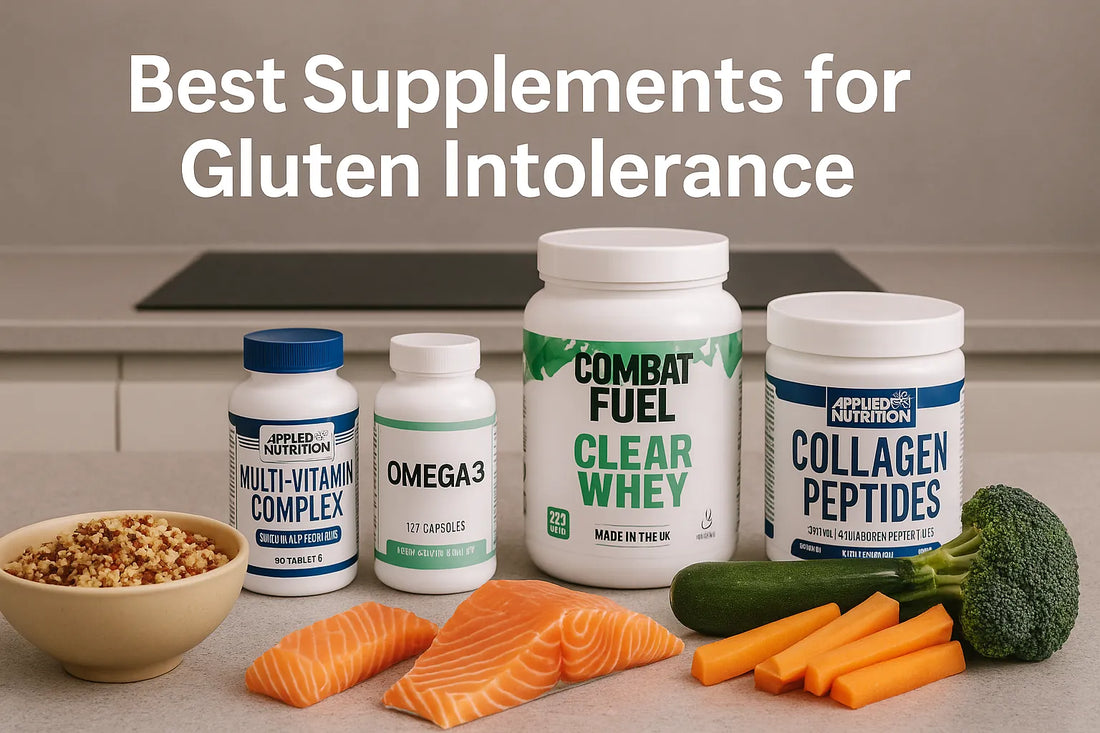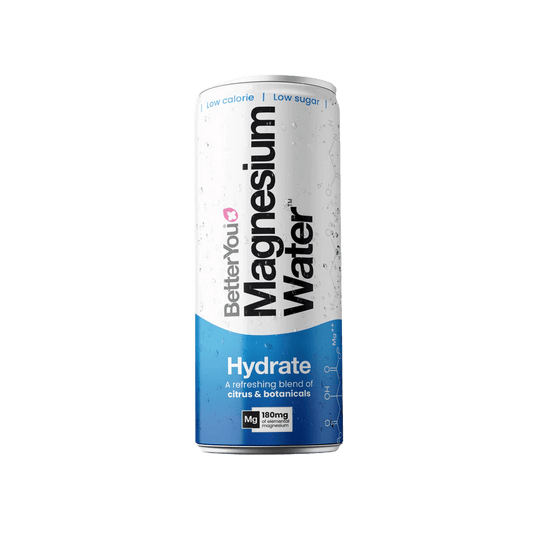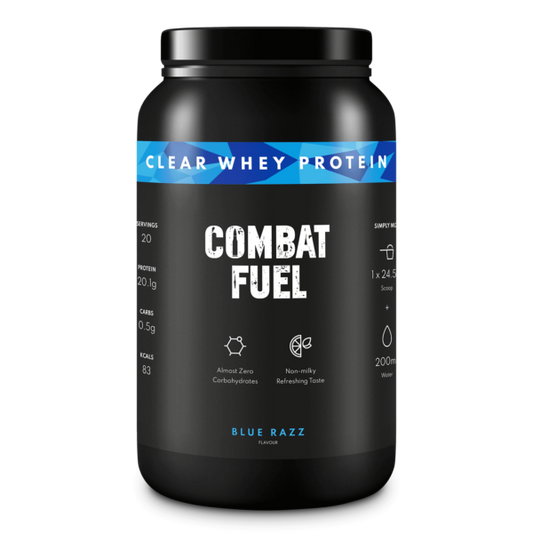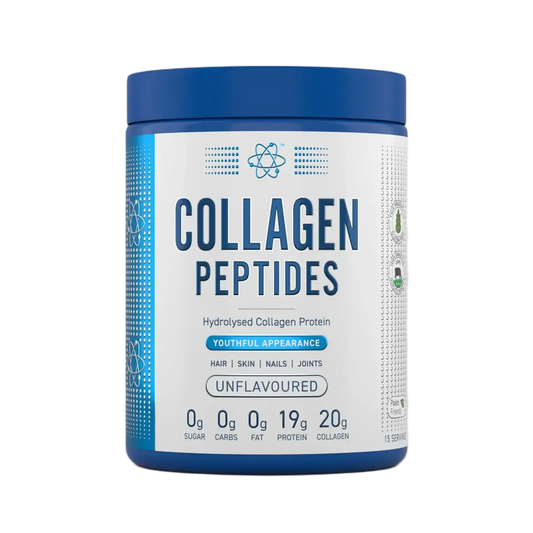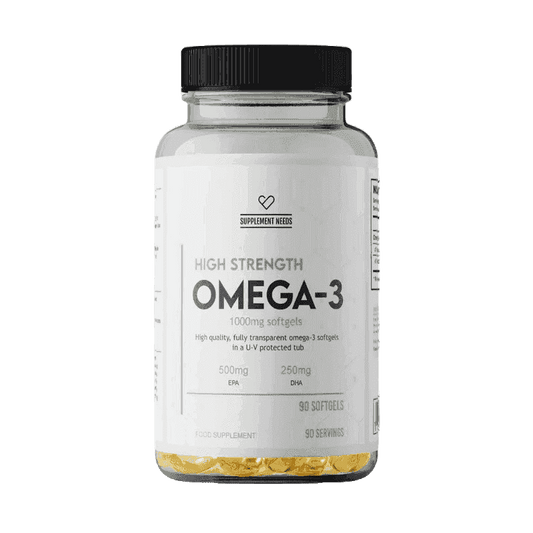Introduction: Gluten-Free Living and the Supplement Question
For many people, gluten intolerance isn’t just a dietary preference — it’s a necessity. Whether it’s celiac disease, non-celiac gluten sensitivity, or general digestive discomfort, cutting out gluten can make a dramatic difference to health and quality of life. But here’s the catch: going gluten-free can also mean missing out on nutrients.
That’s because many fortified breads, cereals, and grains are off the table. Iron, folate, B vitamins, calcium, and fibre are some of the most common nutrients that slip through the cracks when gluten disappears from your diet. Add to that the stress of managing gut health and avoiding cross-contamination, and it’s no wonder so many people turn to supplements for support.
But which ones are actually worth taking? And which ones should you avoid? Let’s unpack the essentials.
1) What Supplements Should I Take for Gluten Intolerance?
If you’re living gluten-free, the goal isn’t to replace food with pills — it’s to fill the gaps left behind. The best approach is to target the nutrients most likely to be missing from your diet. These include:
-
Multivitamins — cover multiple bases at once.
-
Vitamin D — deficiency is common in the UK and especially problematic for gluten-intolerant individuals.
-
Iron — often lower in people with celiac disease due to reduced absorption.
-
B vitamins (especially B12 and folate) — usually found in fortified gluten-containing products.
-
Omega-3 — supports heart and brain health.
💡 Applied Nutrition Multi-Vitamin Complex is a strong foundation. It’s gluten-free, UK-regulated, and designed to cover gaps without adding unnecessary fillers. For people with gluten intolerance, a clean daily multivitamin ensures you don’t slip into deficiency just because bread and cereal are off the menu.

2) What Supplements Do You Need if You Are Gluten-Free?
Going gluten-free isn’t automatically healthier. Yes, you’ve removed a trigger food, but you’ve also cut out a source of nutrients — especially in the UK, where many gluten-based products are fortified by law.
That’s why supplementing is so often recommended. The common needs include:
-
Vitamin D: Many people are deficient regardless of diet, but it’s critical for bone strength and immunity.
-
Calcium: Important if you’re also dairy-free.
-
Iron: Absorption is often lower in those with damaged gut linings (a common side effect of celiac disease).
-
Zinc: Needed for healing and immunity.
-
Omega-3: Lacking if you don’t eat much oily fish.
💡 This is where Supplement Needs Omega 3 comes in. It’s gluten-free, high quality, and helps reduce inflammation — particularly important for gut health and long-term wellbeing in people managing gluten intolerance.
3) What Flushes Gluten Out of Your System?
This is one of the most common Google searches — and one of the biggest myths. There’s no magic pill that flushes gluten out overnight. Once gluten is in your system, your body has to process it naturally. For those with celiac disease or strong intolerance, this means inflammation and gut irritation until the body recovers.
What supplements can do is support the healing process:
-
Protein — supports tissue repair.
-
Collagen peptides — help rebuild the gut lining.
-
Omega-3 — reduce inflammation during flare-ups.
-
Magnesium — helps with cramps and general recovery.
💡 Applied Nutrition Collagen Peptides are a smart choice here. They’re gluten-free and provide amino acids specifically linked to gut repair and connective tissue recovery. They won’t flush gluten out, but they can help your body heal faster after accidental exposure.

4) What Tablets Are Good for Gluten Intolerance?
The best supplements for gluten intolerance aren’t flashy. They’re simple, everyday nutrients that keep your body balanced despite dietary restrictions.
The most helpful include:
-
Multivitamins — daily coverage of gaps.
-
Vitamin D tablets or sprays — especially during UK winters.
-
Magnesium — helps with energy, cramps, and gut function.
-
Iron tablets — if tested and confirmed deficient.
💡 BetterYou Magnesium Water is a brilliant, easy option. Magnesium is a mineral many gluten-intolerant individuals lack, and this format makes daily supplementation convenient without adding anything unnecessary.

5) Do I Need Supplements on a Gluten-Free Diet?
The short answer: probably, yes. While it’s possible to eat a nutrient-complete gluten-free diet, the reality is harder. Many gluten-free substitutes are lower in fibre and nutrients than their gluten-containing counterparts. And without fortified breads and cereals, you miss out on added B vitamins and iron.
Supplements ensure you’re not running on empty. They don’t replace food, but they act as a safety net — protecting you from the deficiencies most common in people with gluten intolerance.
💡 For protein needs, Combat Fuel Clear Whey is a fantastic option. It’s gluten-free, light on digestion, and provides a clean protein source without the carbs or hidden gluten that can lurk in standard powders. It supports muscle repair, recovery, and overall energy without adding risk.
✅ What We’ve Looked Into So Far
-
The nutrients most often missing from a gluten-free diet.
-
Why supplements are a safety net for deficiencies.
-
The myth of “flushing gluten” and what actually helps recovery.
-
The tablets and powders that are safe and effective for gluten-intolerant individuals.
And we’ve highlighted five core products that fit perfectly into a gluten-free lifestyle:
- Applied Nutrition Multi-Vitamin Complex
- Supplement Needs Omega 3
- Applied Nutrition Collagen Peptides
- BetterYou Magnesium Water
- Combat Fuel Clear Whey
🔜 Part 2 will cover:
-
The vitamins celiacs are most deficient in.
-
Whether going gluten-free can cause deficiencies.
-
How to heal your gut after gluten exposure.
-
How long it takes to feel better after quitting gluten.
-
The link between B12 deficiency and gluten intolerance.
-
Plus: a full FAQ and conclusion.
Best Supplements for People With Gluten Intolerance (Part 2)
6) What Vitamins Are Celiacs Deficient In?
Celiac disease damages the gut lining, making nutrient absorption difficult. Even with a perfect diet, deficiencies are common. The most frequent include:
-
Iron → fatigue, anaemia.
-
Vitamin D → poor bone health and immunity.
-
Calcium → linked to osteoporosis risk.
-
Vitamin B12 → essential for energy and nerve function.
-
Folate → needed for cell repair and energy metabolism.
-
Zinc → important for healing and immunity.
This is why supplementation is so important for people with celiac disease.
💡 Applied Nutrition Multi-Vitamin Complex provides a broad coverage, ensuring these common gaps are filled in daily, without relying on fortified breads and cereals that contain gluten.
7) Can Going Gluten-Free Cause Vitamin Deficiency?
This surprises many people. Going gluten-free sounds healthier — and it can be — but if you’re not careful, deficiencies may appear. Why?
-
Many gluten-containing products are fortified by law (iron, folate, B vitamins).
-
Gluten-free alternatives often aren’t.
-
People cutting gluten sometimes reduce variety in their diets.
That’s why supplementing with essentials like vitamin D, magnesium, and omega-3 makes sense. They act as insurance against gaps, especially if your gluten-free diet is heavy on processed substitutes.
8) How to Heal Your Gut from Gluten Intolerance?
Gut healing is one of the biggest concerns for people with gluten intolerance or celiac disease. Accidental gluten exposure can cause bloating, pain, and inflammation that may take days or weeks to calm down.
While no supplement heals instantly, several can support the process:
-
Collagen peptides → rebuild the gut lining and connective tissue.
-
Omega-3 → reduce inflammation.
-
Magnesium → supports relaxation and recovery.
-
Protein → fuels tissue repair.
💡 Combining Supplement Needs Omega 3 with Applied Nutrition Collagen Peptides creates a powerful gut-support duo: omega-3 calms the inflammation, collagen supports the repair.
9) How Long After Quitting Gluten Do You Feel Better?
For most people with gluten intolerance, the first improvements come in 2–4 weeks. Symptoms like bloating and fatigue often reduce quickly.
For those with celiac disease, full gut healing can take 6–12 months — especially if the gut lining has been severely damaged. Supplements like multivitamins, omega-3, collagen, and protein powders provide essential nutrients during this recovery window.
💡 Using Combat Fuel Clear Whey ensures protein intake stays consistent without risking hidden gluten from flavoured blends or cheaper powders.

10) Is B12 Deficiency a Gluten Intolerance?
Not directly — but there’s a strong link. Gluten intolerance and celiac disease can damage the small intestine, the very place where B12 is absorbed. Over time, this can cause chronic B12 deficiency, leading to fatigue, brain fog, and nerve issues.
That’s why regular B12 checks (via blood tests) are essential for people with gluten intolerance. Supplementing with a multivitamin or targeted B12 tablet ensures energy and focus aren’t compromised.
🧠 FAQ: Gluten Intolerance and Supplements
1. What vitamins are lacking in a gluten-free diet?
Common gaps: iron, folate, vitamin D, B12, calcium, and zinc.
2. Are protein powders gluten-free?
Most whey isolates, including Combat Fuel Clear Whey, are naturally gluten-free. Always double-check the label.
3. Do gluten-free diets need supplements?
Not always, but they help prevent deficiencies, especially in long-term gluten-free living.
4. What nutrients are missing if you avoid gluten?
Fortified cereals and breads provide iron, folate, and B vitamins, which need replacing through diet or supplementation.
5. What are the best supplements for celiac disease support?
Multivitamins, vitamin D, omega-3, calcium, collagen, and gluten-free protein powders.
Conclusion: Supplements Make Gluten-Free Living Easier
Going gluten-free can transform health — but it can also leave gaps. Supplements don’t replace food, but they do provide a safety net that ensures your body still gets the nutrients it needs.
The key players are:
-
Multivitamins for general coverage.
-
Omega-3 for inflammation and gut health.
-
Collagen peptides for tissue repair.
-
Magnesium for energy and recovery.
-
Protein powders like Combat Fuel Clear Whey for safe, gluten-free muscle support.
With these essentials, gluten-free living doesn’t have to mean nutrient deficiencies. Instead, it can mean stronger energy, smoother recovery, and confidence that you’re giving your body what it needs.

